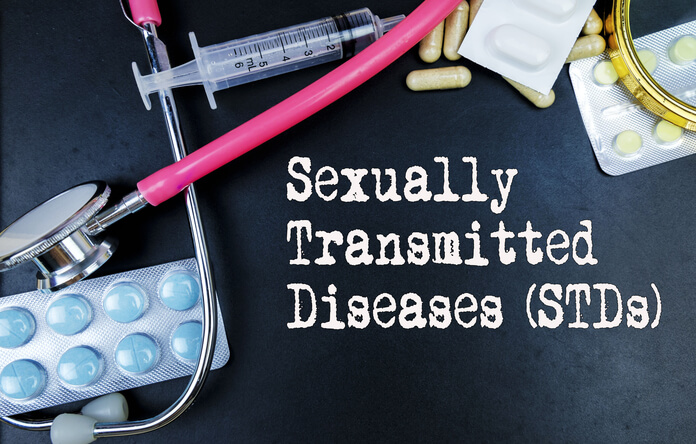Cosa sono le infezioni sessualmente trasmissibili?
Le infezioni sessualmente trasmissibili (NTI) sono malattie che si diffondono per mezzo del contatto sessuale. Circa la metà delle 100 nuove malattie sessualmente trasmissiali identificate sono riportate negli adolescenti e nei giovani al di sotto dei 24 anni. Le malattie non trasmissizioni e istimissici possono essere molto pericolose e avere un impatto sulla salute dei giovani. Sfortunatamente, gravi conseguenze possono coinvolgere la salute riproduttiva, cioè infertilità tubarica, gravidanze travagliate, ecc. Nelle femmine e l’AIDS nei maschi. I fattori comportamentali che causano le malattie sessualmente trasmissili sono comportamenti sessuali non sicuri, comportamenti sanitari e abuso di droghe. Fattori psicologici come l’autostima influenzano anche la diagnosi e il trattamento delle IST nei giovani.

Tipi comuni di malattie non trasmissizioni in anno
Alcuni dei tipi comuni di malattie non trasmissivi di cui dovresti essere a conoscenza includono quanto segue:
- HIV: Human Immunodeficiency Virus, or AIDS-causing agent, destroys the body’s immunity on having unprotected sex with an infected person, or using contaminated needles, or blood transfusion.
- HPV: Human Papilloma Virus is a common STI and seen as genital warts. HPV infection increases risk of cervical cancer in women. Pap tests can detect an HPV infection.
- Chlamydia: Chlamydial infections are characterized by abnormal genital or rectal discharge, burning sensation during urination, and rectal bleeding. In women, it can cause low belly ache and may lead to another disorder called pelvic inflammatory disease (PID). In men, we find urinary problems.
- Gonorrhoea: It causes painful urination or bowel movements, and may even lead to PID, ectopic pregnancy, and infertility in women.
- PID: This STI occurs in reproductive organs due to chlamydia or gonorrhoea. It causes infection of reproductive organs, thus leading to female infertility.
- Genital herpes: This STI is caused by herpes simplex virus (HSV) and manifests itself as a burning sensation which develops into painful sores in the vaginal or rectal area. Treatment is possible but relapses are common.
- Syphilis: Syphilis is a painless open sore or a rash around sexual organs in men and women. Untreated syphilis may lead to heart and nervous system disorders over time.
Altre malattie non trasmissibili includono vaginosi batterica, chancroid, infezioni da citomegalovirus, donovanosi), pidocchi pubici, tricomoniasi, scabbia, ecc.
Protezione dalle malattie non trasmissizioni in anno
Ci sono diverse misure di sicurezza che si dovrebbero seguire per garantire che siano protetti dalle malattie non trasmissivi:
- Stay mutually monogamous with an uninfected partner
- Use a male latex or female polyurethane condom, even for oral sex.
- Reduce chances of getting HIV infections with preventive steps:
- PEP (post-exposure prophylaxis). Take HIV preventive medication within 72 hours of sexual contact.
- PrEP (pre-exposure prophylaxis). Follow strict medication regularly to prevent any HIV infection from sexual contact in future.
- Have regular medical examination for HIV and STIs.
- Avoid sexual contact with somebody who is HIV-positive, and make sure that the other person is taking their HIV medicines.
- Be aware of the symptoms of STIs and seek immediate medical help if any symptoms occur.
- Avoid douche as it reduces the pH of vaginal area making you more prone to infection.
Lo screening per le malattie sessualmente trasmissiche è molto importante nei giovani sessualmente attivi. Molte delle malattie non trasmissizioni e rsi possono essere curate con successo con antibiotici. Alcune malattie non trasmissibili, come l’herpes, non possono essere curate completamente e possono ripresentarsi, il che è prevenibile. Tenere d’occhio la tua salute ed essere consapevole dei sintomi può essere di grande aiuto nel trattamento.


